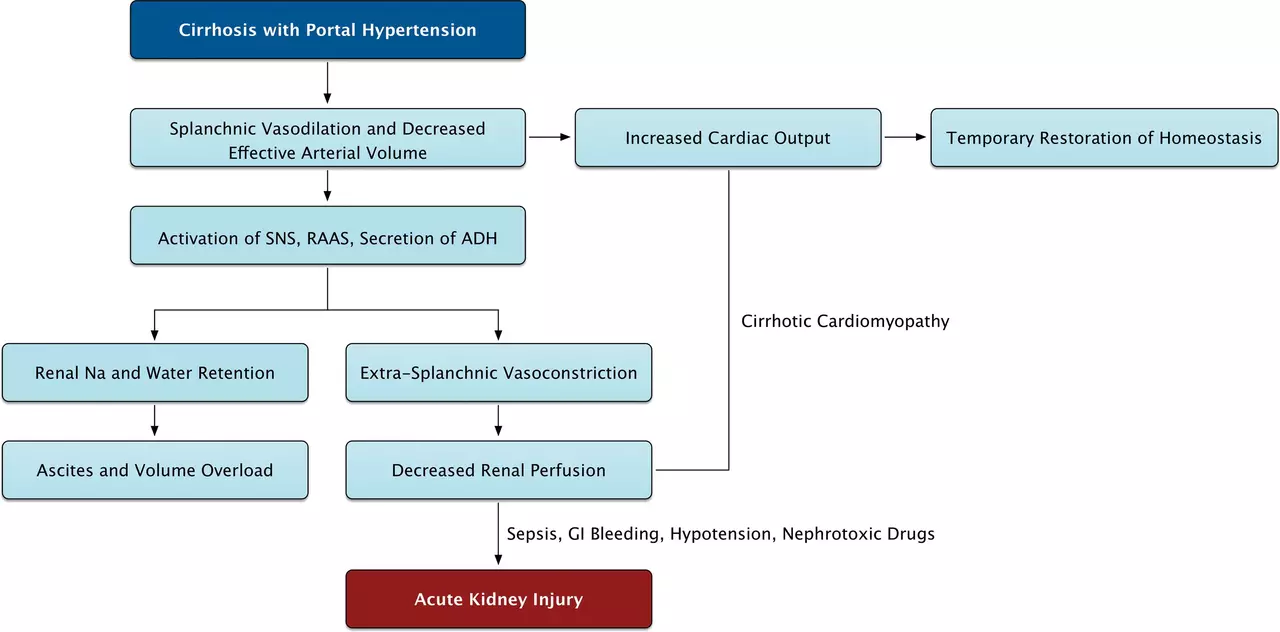Acute Diarrhea: Fast Help, Home Care, and When to See a Doctor
Sudden loose stools can derail your day — and sometimes your week. Acute diarrhea usually starts fast and lasts a few days. Most cases clear with simple care, but a few need medicine or urgent treatment. Here’s a clear, practical guide to help you decide what to do right now.
What usually causes it and how to spot the serious stuff
Common causes: viruses (norovirus, rotavirus), food poisoning bacteria (Campylobacter, Salmonella, E. coli), parasites after travel, certain meds, or food intolerances. Viral cases often mean watery stools and mild fever. If you see bloody stool, very high fever, severe belly pain, or symptoms that keep getting worse, think bacterial or other serious problems and see a clinician.
Also watch for risk flags: very young kids, older adults, pregnant people, and anyone with a weakened immune system need faster care. Recent antibiotic use raises the chance of C. difficile, which needs medical attention.
Practical at-home steps that actually help
Rehydrate first. The biggest risk is dehydration. Use oral rehydration salts (ORS) if you have them. A simple homemade mix: 1 liter of clean water, 6 level teaspoons of sugar and 1/2 teaspoon of salt. Sip slowly and often. Avoid plain soda or sugary drinks for small children — they don’t replace salts well.
What to eat: start with bland, easy-to-digest foods (toast, rice, bananas, applesauce) once you can keep fluids down. Avoid heavy, greasy, or very spicy meals until you feel better.
Over-the-counter options: loperamide (Imodium) can cut stool frequency for adults with uncomplicated watery diarrhea. Don’t use loperamide if you have bloody diarrhea or a high fever. Bismuth subsalicylate (Pepto-Bismol) can help with traveler’s diarrhea and upset stomach; avoid it if you’re on blood thinners or are pregnant without checking first.
Probiotics such as Saccharomyces boulardii or Lactobacillus rhamnosus GG can shorten the illness by a day or so in some cases. They’re low-risk for healthy adults but ask your doctor before giving probiotics to infants or immunocompromised people.
When might antibiotics be needed? Not for routine viral diarrhea. Antibiotics can help in specific bacterial infections (severe fever, bloody stool, confirmed bacterial tests, or certain travel-related cases). A clinician decides based on symptoms, recent travel, and test results.
Know when to get immediate care: very little or no urine, dizziness, fainting, bloody stools, severe belly pain, fever above 38.5°C (101.3°F), or symptoms lasting more than 48–72 hours. Babies and the elderly should be evaluated sooner.
This tag groups practical articles on related meds, antibiotic choices, safe online pharmacies, and cost tips—useful if your case needs prescription care. Browse the posts below to read about cephalexin pricing, clavulanate in infections, and safe ways to buy medicine online.
The Dangers of Self-Medicating for Acute Diarrhea
As a blogger, I feel it's crucial to discuss the dangers of self-medicating for acute diarrhea. Many people tend to rely on over-the-counter medications, but this can lead to a delay in proper treatment, worsening of symptoms, or even dangerous side effects. It's essential to consult a healthcare professional, as diarrhea could be a sign of an underlying issue requiring a different course of action. Moreover, self-medicating can interfere with the body's natural defense mechanisms, prolonging the illness. In conclusion, it's always best to seek professional advice before attempting to self-treat acute diarrhea.
